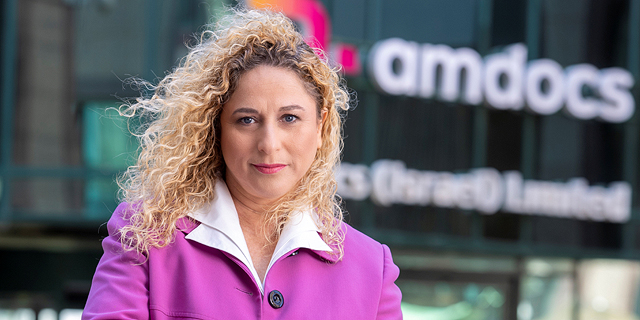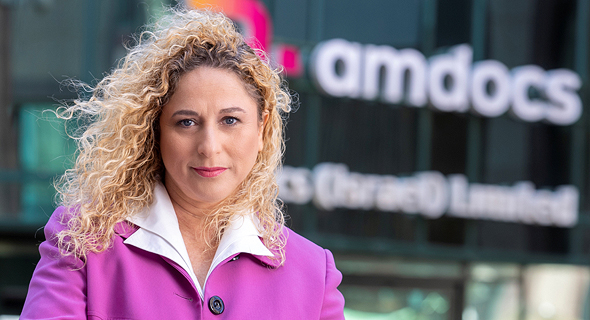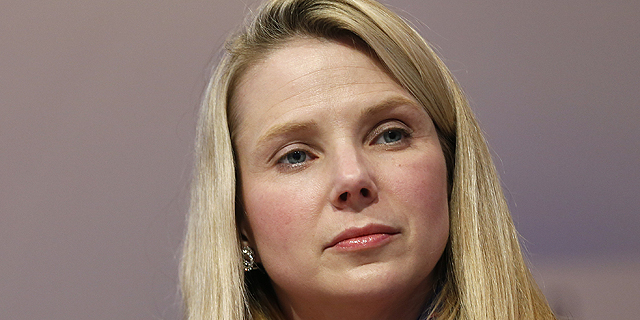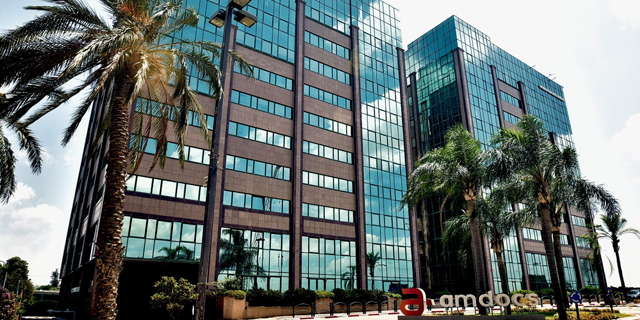
Interview
Working from home will set women back decades, says Amdocs CFO
“At Amdocs, I’m no longer the only woman in the room,” said Tamar Rapaport-Dagim, but predicts that working remotely during the pandemic will harm women in the long run
“Our investors are satisfied” Solaredge, which develops residential solar panels has been around for 12 years, while Amdocs has been around for 36 and yet Solaredge has an annual net profit of $1.5 billion, the same as Amdocs’. Despite that, the market valuation of Amdocs is close to $10.2 billion while Solaredge is over $15 billion. It’s clear which company is growing, and which is perceived as standing still. “The point isn’t about who has the highest market valuation, rather about how you build a successful company that will survive for decades to come. For better or worse, I was exposed to plenty of estimated valuations during my time at the Emblaze Group. We had a valuation of $4 billion and were piggybacking on the mobile video wave, when the bubble burst. When a publicly-traded company doubles its price based on a pipedream, market volatility could be crazy. Solaredge is being traded at an extremely high projection multiplier. Amdocs’ shares rose 35% this year, and our investors are satisfied. I think we might climb even higher.” You purchased land for a new office campus in Ra'anana for NIS 350 million ($106 million), and then the pandemic hit. Weren't you afraid to touch the “cursed grounds” that drove away giants like Teva Pharmaceuticals and Comverse Technology? “I don’t believe in superstitions. We couldn’t find land that was sufficient for our company, and that’s when the opportunity presented itself, when Teva, then the landowner decided to leave the project. There was economic viability in this decision, and I was convinced this was the right thing to do for the company, economically, and for other reasons as well. Despite the pandemic, I think this was the right thing to do since it’s a decision that will last for decades to come, not only for a few years. We have also considered possibilities of leasing the space to other companies as needed.” “The new campus won’t be a white elephant”
So you’re stuck with a large expensive campus, which your company plans to move in to in 2022, just as the world is transitioning to a hybrid work model.
“Prior to the pandemic, we transitioned employees to work one day a week from home, so I don’t think that we’re ‘stuck’ with this new campus. We are currently examining our model’s accuracy. We’ll be leasing areas, and are still considering what our work patterns will be like. If employees don’t come to the office every day, will they still require set work spaces? The office complex won’t become a ‘white elephant.’ Since the end of the lockdown, 20% of employees have already returned to our offices. We are seeing people thirsty for social interactions. People want those interactions, albeit with flexibility.”
When will you announce your post-coronavirus policy? And why not leave the decision on how to work part-time out of the office up to employees? “It won’t be completely voluntary for employees, but there will be flexibility. A physical workplace environment creates capabilities that are hard to duplicate while working remotely. We are examining what other companies are doing as well. The model adopted by LivePerson, who had all their employees work from home, certainly won’t happen in our case. How do you connect with people at your company emotionally when they’re working remotely? Where is the emotional connection? A picture of your boss on a screen? What happened to asking a colleague in the hall what their kids dressed up as over the Purim holiday? That entire dynamic of working in a team in the long term could be harmed, and it could also harm women’s integration into the workforce.” Why? “Staying home puts women back in the traditional role of ‘caregiver.’ Some think that work from home is good, since it provides women with more flexibility, but I think the exact opposite is true. Women are already less apt to offer their opinions when working remotely. All the routine problems tend to escalate. I support having flexibility and the ability to maneuver for the sake of your family, but I oppose the absolute solution of working from home. It sets the female workforce back several years.” You came to Amdocs from the world of financial management. Isn’t it frustrating to view the world through an Excel spreadsheet? “For a long time I've been in charge of other things aside from the money flow, otherwise I wouldn’t have stayed in this position for so long, because it would be too limiting. Today, I’m in charge of human resources, operations, and legal, but the real question is how all these reports and the information they provide can influence the company’s decisions and allow me to be a compass to guide the company and give it advice on what to do, not just say ‘there’s a problem, move 30 degrees to the right.’” Today, you’re the company’s number-two. Will competing for the leadership be on your agenda? “It could very well be. I am driven by what interests me. A title doesn’t define what you actually do. There are CEOs who have directors who are like managers, and don’t actually lead a company. There are situations where you can be influential, and not necessarily be the CEO. I feel a real partnership here as CFO at Amdocs. To be able to say that I’m ‘number one’ doesn’t really do it for me.”

